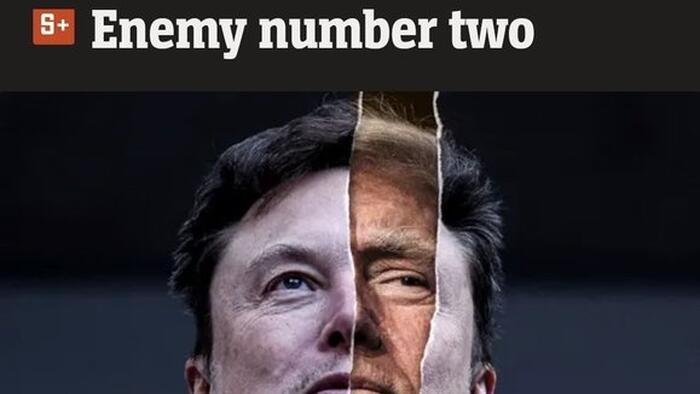Elon Musk, the owner of X (formerly Twitter), has recently heightened his security protocols after receiving what he describes as “vitriolic” threats. During a town hall event in Pittsburgh, Musk shared his experience of being depicted on the cover of the German magazine Der Spiegel as ‘Public Enemy No. 2,’ following only former President Trump. This labeling sparked his criticism of mainstream journalism and a broader discussion on civil liberties. He expressed concern about the implications of being marked as an enemy of democracy when, in his view, he is a strong proponent of democratic values and the Constitution. Musk’s response to this controversy included a wry comment about potentially needing to cancel public appearances and enhancing his security measures.
Musk articulated his discontent regarding the intense hostility he perceives from the political left. He recounted feeling somewhat unsettled by the extreme levels of hatred directed at him, specifically for his endorsement of Trump. Musk asserted that the ideological divide is marked by a stark contrast in attitudes; he claims that those on the left exhibit a significant degree of intolerance and animosity, while individuals on the right tend to view those on the left as misguided rather than hate-filled. This observation highlights Musk’s belief that the current political climate within the United States is characterized by division and, at times, a lack of civil discourse.
The billionaire’s remarks came amid a backdrop of increased vitriol directed at him, especially since he voiced his support for Trump. He pointed out that figures like Mark Cuban have publicly suggested punitive measures against his ventures due to his political stance. Musk’s commentary regarding his experience with threats and hostility reflects a broader sentiment about the potential consequences individuals face for expressing divergent political views in today’s polarized environment. He emphasized the absurdity of being targeted for merely advocating for free speech and endorsement of democratic principles.
Musk’s commentary also ventured into the realm of free speech and citizen journalism, where he expressed gratitude for his acquisition of Twitter, noting its potential as a platform for unfiltered communication. His perspective challenges the mainstream media narrative and champions the idea that platforms like X can serve as crucial vehicles for free expression. In Musk’s view, this shift away from traditional journalism marks a pivotal moment in how information is shared and consumed, thus shaping public discourse and opinion.
Despite the backlash and threats, Musk remains steadfast in his belief that the upcoming election is critical for the future of democracy in the U.S. He has painted a dire picture, suggesting that if Trump were not to win, it could signal a significant turning point for civilization as a whole. This assertion highlights the intense stakes he associates with the political landscape and frames his endorsement of Trump as not just a personal opinion but rather as a necessary stand for what he perceives to be the future of democratic governance.
Overall, Musk’s experience serves as a microcosm of the prevailing tensions between differing political ideologies in contemporary America. His comments about the environment of fear, intolerance, and public questioning of loyalty reflect broader societal divides and the risks individuals face when expressing political opinions. Moreover, his defense of free speech and support for Trump amidst criticism underscores the challenges of navigating the current and often hostile political landscape, where dissenting views can lead to significant personal and professional repercussions.

